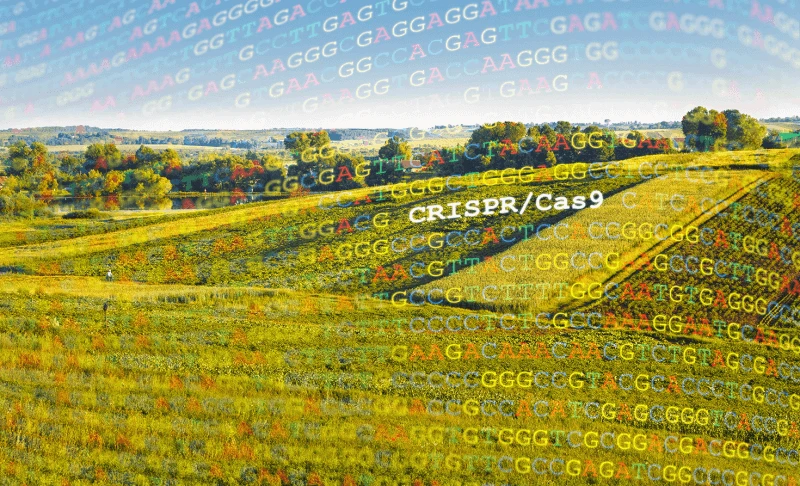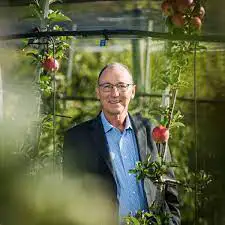European organic farming pioneer on why agricultural sustainability supporters need to drop their opposition to gene edited crops
European organic farming pioneer on why agricultural sustainability supporters need to drop their opposition to gene edited crops


For years, as director of the Swiss Research Institute for Organic Agriculture (FiBL), Urs Niggli fought against the genetic modification of crops. Today, he emphatically advocates the use of modern genetic engineering, in agroecology. … Niggli … is now founding president of the Germany-based Institute for Agroecology, while serving as a university professor in Germany and China.

‘I’ve come to realise organic agriculture will always be more or less a niche; globally, it’s now 2% on average, maybe it will become 10–15% with outliers like Austria where organic farming is practised on more than a quarter of the area. But that’s about it.
At the same time, a transformation is needed towards a way of farming that is ecologically and socially responsible while delivering high yields. In my view, that is agroecology. That transformation also includes research into new breeding techniques such as gene editing. This technique allows us to make crops resistant to diseases, pests and drought. It could replace mineral fertilisers because crops other than leguminous plants can also fix nitrogen. Much of it is still in the future, but new breeding techniques offer many prospects for agroecology.’
‘The scientific community, of which I am still part, is clear: modern breeding techniques are no more risky than any classical breeding method. I’ve been on European and Swiss committees where environmental groups were also represented. They have not been able to substantiate in any way their claim that these techniques are dangerous. That means they were either too lazy to find out, or they were unable to find anything to support their claim.’
…
Since there are no additional risks to new breeding techniques, do you think no additional rules are needed for the authorisation of genetically modified crops?
Niggli: ‘I agree, no additional rules are needed. It would be best to simply embed the authorisation of genetically edited crops into the existing rules for the introduction of new varieties.
This is an excerpt. Read the original post here

 | Videos | More... |

Video: Nuclear energy will destroy us? Global warming is an existential threat? Chemicals are massacring bees? Donate to the Green Industrial Complex!
 | Bees & Pollinators | More... |

GLP podcast: Science journalism is a mess. Here’s how to fix it

Mosquito massacre: Can we safely tackle malaria with a CRISPR gene drive?

Are we facing an ‘Insect Apocalypse’ caused by ‘intensive, industrial’ farming and agricultural chemicals? The media say yes; Science says ‘no’
 | Infographics | More... |

Infographic: Global regulatory and health research agencies on whether glyphosate causes cancer
 | GMO FAQs | More... |

Why is there controversy over GMO foods but not GMO drugs?

How are GMOs labeled around the world?

How does genetic engineering differ from conventional breeding?
 | GLP Profiles | More... |

Alex Jones: Right-wing conspiracy theorist stokes fear of GMOs, pesticides to sell ‘health supplements’




 Viewpoint — Fact checking MAHA mythmakers: How wellness influencers and RFK, Jr. undermine American science and health
Viewpoint — Fact checking MAHA mythmakers: How wellness influencers and RFK, Jr. undermine American science and health Viewpoint: Video — Big Solar is gobbling up productive agricultural land and hurting farmers yet providing little energy or sustainabilty gains
Viewpoint: Video — Big Solar is gobbling up productive agricultural land and hurting farmers yet providing little energy or sustainabilty gains Fighting deforestation with CO2: Biotechnology breakthrough creates sustainable palm oil alternative for cosmetics
Fighting deforestation with CO2: Biotechnology breakthrough creates sustainable palm oil alternative for cosmetics Trust issues: What happens when therapists use ChatGPT?
Trust issues: What happens when therapists use ChatGPT? 30-year-old tomato line shows genetic resistance to devastating virus
30-year-old tomato line shows genetic resistance to devastating virus California, Washington, Oregon forge immunization alliance to safeguard vaccine access against federal undermining
California, Washington, Oregon forge immunization alliance to safeguard vaccine access against federal undermining The free-range chicken dilemma: Better for birds, but with substantial costs
The free-range chicken dilemma: Better for birds, but with substantial costs ‘You have to treat the brain first’: Rethinking chronic pain with Sanjay Gupta
‘You have to treat the brain first’: Rethinking chronic pain with Sanjay Gupta
